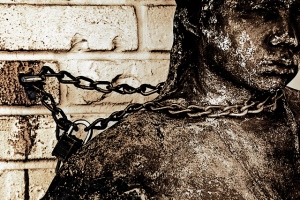“Come to me, all you who are weary and heavy-laden, and I will give you rest.”
I seem to forget that Jesus said that. Quite frequently, in fact. Sometimes all I can hear is the call to follow, to take up my cross and get going, to get out there and bring good news to everybody.
And it’s true that Jesus said these things, but I forget that he also said, in his very last days on Earth, “Abide in me.”
The One who had no place to lay his head told us he would be our place. The One who calls us to take up our cross and follow him said he would make our yoke easy and our burden light.
This Lent, Jesus called me to go back to my first love. To find joy and peace just in being with him, like how good friends can sit together, saying nothing, doing nothing, just enjoying each other’s presence.
During Holy Week, I read Psalm 131, which really brought it all home for me.
My heart is not proud, Lord,
my eyes are not haughty;
I do not concern myself with great matters
or things too wonderful for me.
But I have calmed and quieted myself,
I am like a weaned child with its mother;
like a weaned child I am content.Psalm 131 1-2
God welcomes me when I’m tired, when I feel overwhelmed, when I feel broken. God invites me to bring this to our times together and lay it down, so I can be calm and quiet, like a tiny child leaning on my mother’s shoulder.
Notice that it’s specifically a weaned child. The weaned child is not restless with hunger, fussing and wanting milk. The weaned child can be content just leaning on its mother, enjoying the deeper-than-words bond they share.
I’ve also been reading the book of John a lot lately, the one where Jesus says “I am” a lot. I am the bread of life. I am the light of the world. I am the good shepherd. I am the way, the truth, and the life.
Sometimes these statements don’t sound very humble. But the more I read them, the more I hear Jesus humbly offering to take care of all our needs. “I will feed you, lead you, light up your life. I will take care of you and satisfy your needs in a way no human person can. Just come rest in me.”
I make my faith about so many other things sometimes. I worry about getting to church on time, about reading the Bible “enough,” about doing the right things for the right reasons. And we should care what we do; we should want to grow and change for the better.
But the real insight of this Lent, for me, was that I can’t do any of those good things, not for long, unless I abide in Jesus. Like I can’t do a good day’s work if I haven’t gotten any rest.
I need to listen to that call to rest. When I try to pour myself out for others, I quickly feel like I have only the dregs left. But when I let God fill me first, that’s when my cup spills over.

